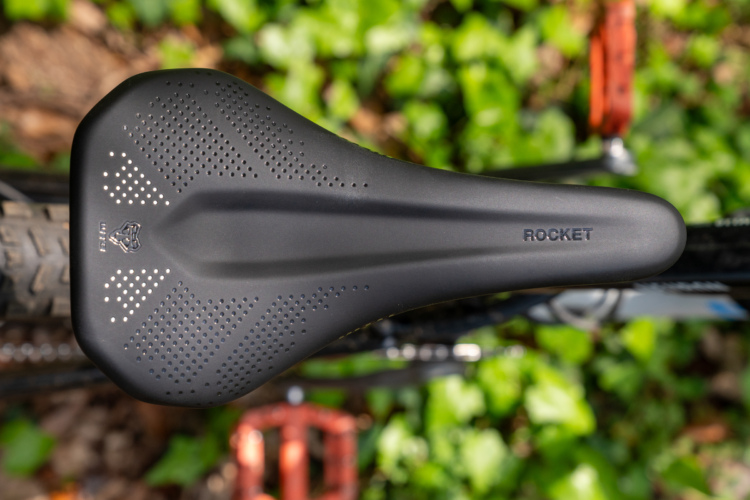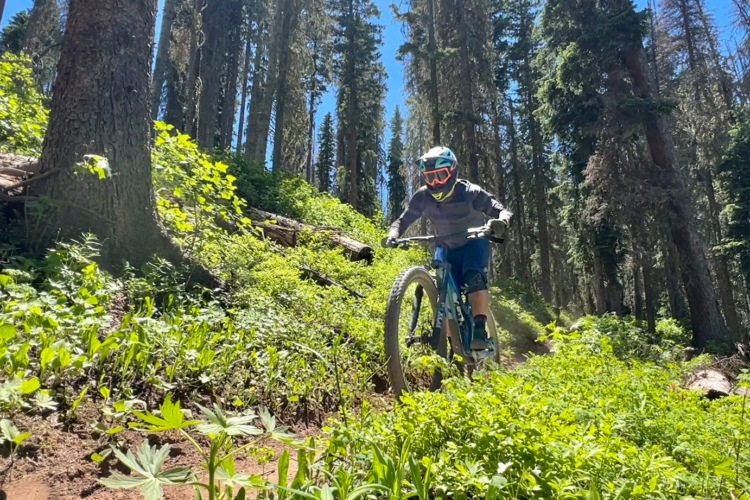 You’ve probably heard the hype surrounding Global Positioning System (GPS) receivers lately or even seen someone out on the trails using one. But what can a GPS do for you as a mountain biker? If you’re currently using a cycling computer to keep track of ride data or you’re interested in making your rides safer, you may want to consider purchasing a GPS unit.
You’ve probably heard the hype surrounding Global Positioning System (GPS) receivers lately or even seen someone out on the trails using one. But what can a GPS do for you as a mountain biker? If you’re currently using a cycling computer to keep track of ride data or you’re interested in making your rides safer, you may want to consider purchasing a GPS unit.
When I first heard about GPS a few years ago I didn’t understand the point. I mean, this thing can tell you your position at any time but who cares? Great, I’m at 39.30778 and 105.41283, now what? I was pleasantly surprised to find out that my GPS unit could does much more and was truly user-friendly.
First off, a GPS unit can do everything your cycling computer can do (aside from maybe heart rate information). The GPS unit will tell you your speed at any time and also the distance you’ve traveled. If you’re traveling in a relatively straight line to a known point the GPS can even estimate how long it will take until you reach your destination! Of course you can read your data any way you like to find average speeds, trip times, and more. More sophisticated units can tell you how much you’ve climbed or descended on your ride and can tell you in real time your rate of climb. If you’re a data junkie like me you’ll find that the GPS gives you something to look at while you’re struggling through that impossible climb or waiting at the top for your friends. No cycling computer can match the amount of data even the most basic GPS unit will provide.
Next, if you’re using a guidebook or map while riding an unfamiliar trail the GPS unit can help you determine where you are in the ride. For example, Falcon Guide Books give you maps, elevation profiles, and mileage-based descriptions in their trail descriptions. With a cycling computer you can certainly keep up with the mileage-based descriptions but the GPS lets you do much more. When you’re climbing that major spike on the elevation profile map it’s nice to know how much farther you have to reach the top. With the elevation data your GPS provides you’ll be able to figure it out quickly. Also the overview map can be helpful as well because your GPS unit draws a map (called a track log) that you can compare to the map printed in the book. For a loop trail you can estimate what portion of the loop you’ve completed and the types of turns coming up (switchbacks for example).
Another great reason to consider a GPS is for safety. The track log feature on a GPS is essentially a digital breadcrumb in case you get lost. Most mid-range units allow you to “back track” over the route you traveled, a great feature for an out-and-back trail. You can also mark landmark points (called waypoints) such as where you parked your car (always a good idea). If you find yourself lost you can navigate back to any waypoint via a straightline route and you can even see how far you are from that point. Because waypoint navigation is given as a straight line, as-the-crow-flies direction, you’ll want to make sure you have plenty of waypoints marked so you can travel from one to the next without doing too much trailblazing.
Speaking of trailblazing, I’ve used my GPS unit more than once for this purpose. For example, you may have gotten off trail at some point and want to get back on the trail you traveled out on. With the GPS track log map feature you can see where you’ve already been and can head back to the trail you used to ride out. Most GPS units will also calculate the sunrise/sunset times for your particular location so you’ll know if you have enough time to get your ride in before it gets dark. Make sure the unit you choose also has a backlight feature for those times when you don’t quite make it back before sunset.
You might be wondering how you can effectively take a GPS with you when you ride. GPS units rely on a clear view of the sky and they like to be held face up so that the antenna is properly aligned, making it critical that you affix your GPS to your handlebars properly. Most GPS manufacturers sell or includehandlebar mountsand in my experience some work quite well. The GPS unit itself is usually larger and heavier than a cycling computer so you may not want to bring one along on your next race. However, the amount of data and sense of safety that having a GPS offers makes it a great thing to have with you on your next ride.
Updated 4/4/2012.




















0 Comments